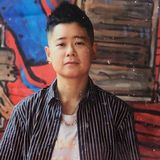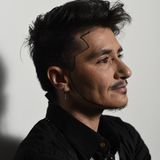The idea of polyamory and polyamorous experiences are fluid and in constant change, there is no formula to understand it, experience it and define it. There is a need to decolonize the established idea of love, to start enjoying relationships that help us grow in community.
For this edition of Queer City we are ready to break all conventional and binary ideas of love, intimacy and connection. Let’s explore love and relationships from a non western perspective, letting go of the established ideas and bringing in new ways to love.
Whether you are interested in developing your relationships, poly curious, or trying to find a safer space, get ready to go on a journey of self-discovery and exploration through performances, rituals, personal stories and different life experiences from BIPOC queer & trans community members that have chosen to experience love from openness, freedom and community care.





About the speakers:
Nisala Sathyaijth Saheed (They/Them): I am a multidisciplinary Sri Lankan visual designer and am driven by creating access to knowledge, enhancing spiritual connections, and empathetic exchanges. The way we design our spaces and our world exposes who belong, so I try to cultivate the sense of belonging across identity. I have a background in Visual Art and Sociology, and I am motivated by post-colonial theory, de-digitization, and notions of Queer Utopia. Take a moment and feel the earth below us holding our bodies. We belong here.
Goddess Coco (She/They): BDSM – Boundaries, impact play and bondage.
Jack Porter (He/Him): Seeking, relating, becoming.
Fer González (She/They): Performance artist and researcher working between Amsterdam and Mexico City. Their practice is embedded within feminism and decolonial frames that help in critically understanding the current socio-political and affective conditions of our world and re-imagine alternatives possible.
Nene Moné (They/Them): is a non-binary, transdisciplinary artist, activist and researcher working on social and environmental justice issues. Their experience with social and environmental issues began at an early age with their family’s struggles for access to education, healthcare and general livelihoods in Chile.






